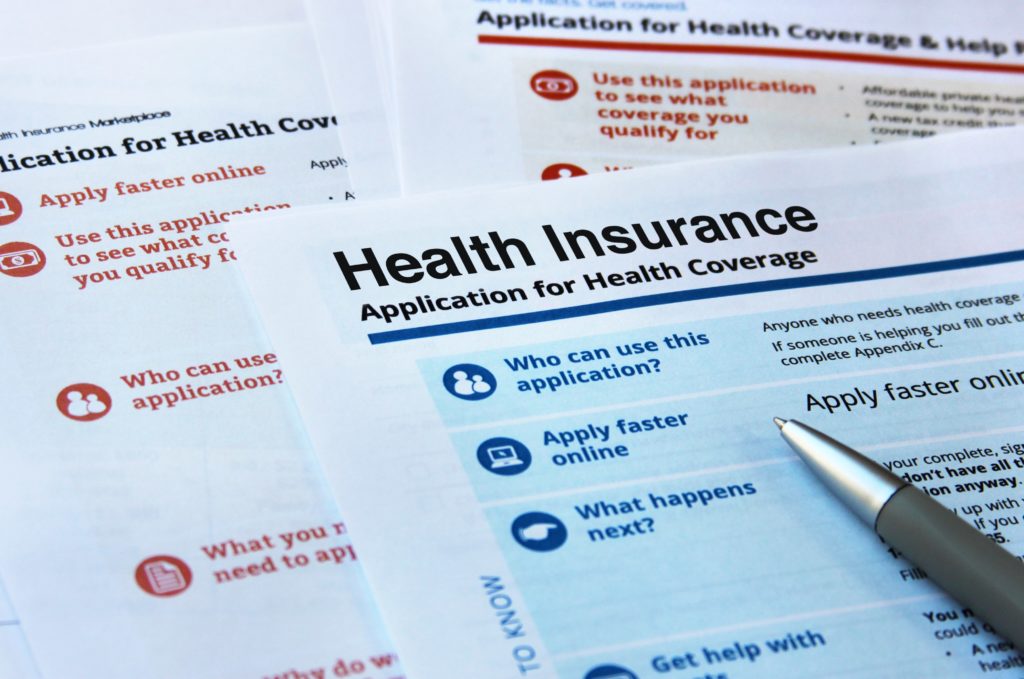Once someone has made the important decision to seek addiction treatment, the question of how to pay for rehab is not far behind. After all, rehab can be expensive, and while some people may not have insurance, others are not sure whether their health insurance even covers the cost of rehab.
Whether someone has insurance or not, it may be helpful to know they have options when it comes to figuring out how to pay for drugs (whether it’s hard drugs like heroin or drugs like marijuana) and alcohol addiction treatment. Despite the variety of treatment programs available, people stand a good chance of finding one they can afford but also finding the one that’s best. Read on to learn more about how to pay for the rehab—with or without insurance.

Options for Addiction Treatment
Before diving into options on how to pay for rehab, it’s important to define the different levels of addiction treatment. After all, the term “drug rehab” does not mean just one thing.
Depending on one’s age, physical type, the substance being abused, and the intensity of withdrawal symptoms one will likely experience, various levels of addiction treatment are at one’s disposal.
These include:
Detox
Detox is the necessary first step in addiction treatment. It is the multi-day process of stopping one’s addictive behaviors to allow toxic substances to leave the body. Depending on how long one has been addicted to either drugs or alcohol, as well as the physical attributes of the user like weight, age, and metabolism, the severity of withdrawal symptoms can range from uncomfortable to severe to life-threatening.
Inpatient Rehab
Inpatient rehab programs provide intensive addiction treatment for 30, 60, or 90 days. Residents work with therapists for a minimum of three hours daily. This gives those recovering the opportunity to work toward their rehab goals in a safe and supervised environment. Residents of inpatient rehab undergo 24-hour medical monitoring and care. Many inpatient rehab facilities offer amenities like pools and recreational facilities, providing meals and personal care.
Partial Hospitalization Program (PHP)
PHP is a structured, intensive program of outpatient psychiatric services. This means patients do not stay overnight in a facility but instead are treated throughout any given day. PHP represents a “step down” from an inpatient program or residential addiction treatment. PHP programs typically offer individual and group therapy as well as complementary therapies.
Intensive Outpatient Program (IOP)
Commonly known as IOP, intensive outpatient programs usually involve multiple hours of treatment on several days throughout a given week. Treatment usually includes individual and group therapy sessions. Other services like MAT or family programming can also make up IOP treatment.
Outpatient Program (OP)
Outpatient programs are appropriate for those looking for addiction treatment while still living in their own home and keeping up with the duties of work, school, or family. Patients in OP meet with therapists or counselors for weekly appointments, undergoing a variety of therapies designed to help them manage their addiction and avoid relapse.
Sober Living
Sober living occurs during the transition from intensive addiction treatment to returning to mainstream society. People in sober living situations practice independent living while their peers or supervising staff keep them accountable and ensure they stay sober. Sober living houses, or SLHS, provide continuing care after addiction treatment by separating residents from the temptations of drugs and alcohol while providing a safe and supportive environment.
Paying for Rehab with Insurance

Employer-Sponsored Plans
The 2010 passage of the Patient Protection & Affordable Care Act now includes detox and treatment for alcohol and substance use disorders joined the list of. These are now considered medical conditions employer-sponsored insurance plans were partially or fully required to cover.
It also prevented denial of coverage for those with pre-existing AUD or SUD conditions. Examples of private insurers include Aetna, BlueCross BlueShield, and UnitedHealth Group. One may need to refer to their plan specifics to determine the exact amount of coverage.
TRICARE
TRICARE provides civilian healthcare benefits to U.S. military personnel, retirees, and their dependents. All TRICARE-eligible beneficiaries have access to substance use disorder benefits, though how one receives such care depends on the plan.
Active-duty service members pay zero out-of-pocket healthcare costs. However, other TRICARE enrollees and beneficiaries have a choice of options, depending on their plan. Therefore, TRICARE beneficiaries should contact their regional contractor to find out if a certain rehab program requires a physician referral.
Health Insurance Marketplace Plans
If someone enrolled in a plan offered on their state’s Health Insurance Marketplace, their plan is required to provide full or partial coverage of all essential healthcare benefits. These include mental health and substance use disorder services, as well as behavioral health treatment like counseling and psychotherapy. Those with coverage with a Health Insurance Marketplace plan are covered for detox up to a certain percentage, based on the type of plan selected.
Medicare
Medicare covers alcohol and substance abuse treatment programs, though eligibility requirements and the enrollment process varies from state to state. Medicare-covered services include:
- Patient education regarding diagnosis and treatment
- Psychotherapy
- Opioid treatment program (OTP) services
- Substance use counseling
- Individual and group therapy
- Toxicology testing and drug screenings
One should also keep in mind not all addiction treatment centers accept Medicare plans for payment.
Medicaid
Also under the Patient Protection & Affordable Care Act, Medicaid is required to offer coverage for most services that fall under the definition of addiction treatment. Some of the services covered under most Medicaid plans include:
- Health screenings to determine current health status and diagnose substance use disorders
- Alcohol and drug testing
- Drug and alcohol interventions, including emergency hospital stays
- Inpatient or outpatient rehab services with an approved treatment facility
- Family counseling, if deemed necessary for treatment
- Certain addiction treatment medications, including those prescribed for withdrawal
- Dual diagnosis services for mental health disorders co-occurring alongside the substance use disorder
Even if someone doesn’t have Medicaid currently, they may qualify. This is especially true if they recently lost their job or have seen a significant reduction in their personal income. As with Medicare, not all addiction treatment centers accept Medicaid.
Paying for Rehab Without Insurance
Does a person have to have insurance to go to rehab? The short answer is no, but the long answer depends on any number of variables.
Healthcare Lenders
The first thing to know when it comes to figuring out how to pay for rehab without insurance is that there do exist several institutions that specialize in financing options for people to take care of healthcare-related matters, including addiction treatment. These loans often have lower interest rates than run-of-the-mill bank loans. Still, it is recommended that people compare rates with that of their regular financial institution before signing anything.
Of course, the amount one qualifies for depends on their credit status. Therefore, it only helps to have one’s finances in order before applying for a loan with one or another of these institutions. Formerly known as American Health Care Lending, Prosper Health Care Lending provides healthcare financing with low-interest rates and fixed monthly payments for behavioral health treatments, including addiction treatment.
LightStream offers financing options, depending on credit status, for virtually any need, including addiction treatment. While LightStream can provide same-day loan approval and funding, it does not disclose its minimum income requirement, which makes it more difficult for potential borrowers to know if this lender can help them.

Other Possibilities
- Explore their employee assistance program
- Use funds from a Health Savings Account
- Apply for a low-interest-rate credit card
- Payout of personal savings
- Borrow money from family and friends
- Contact the chosen addiction treatment center about payment options
Learn How to Pay for Rehab in Nashville, TN
Your decision to attend rehab for your substance use disorder or alcohol addiction should not be hindered by questions surrounding cost.
Contact Discovery Place today to explore your options when it comes to paying for rehab and start your journey from addiction to recovery.

